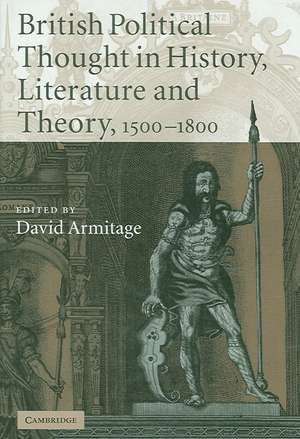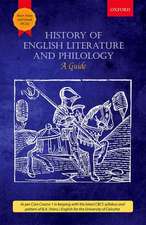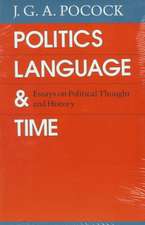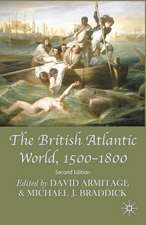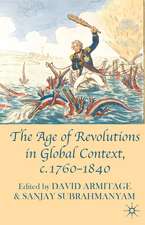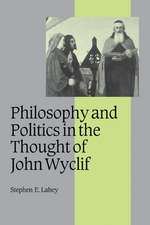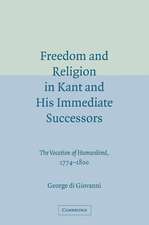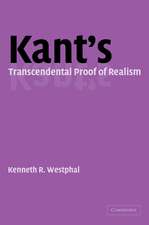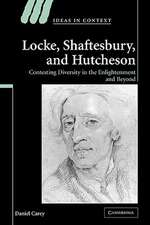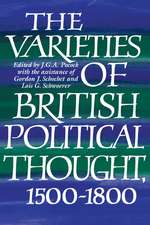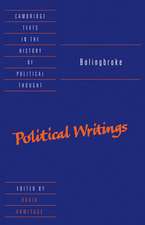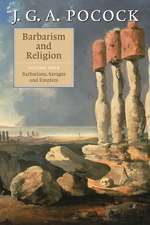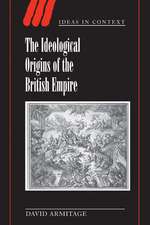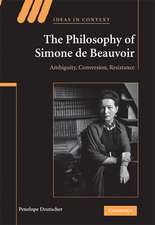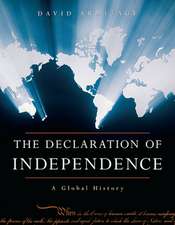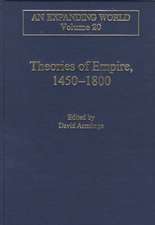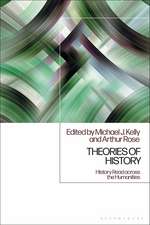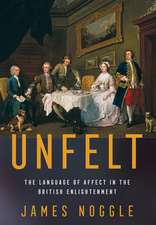British Political Thought in History, Literature and Theory, 1500–1800
Editat de David Armitageen Limba Engleză Hardback – 22 noi 2006
| Toate formatele și edițiile | Preț | Express |
|---|---|---|
| Paperback (1) | 289.78 lei 6-8 săpt. | |
| Cambridge University Press – 10 feb 2010 | 289.78 lei 6-8 săpt. | |
| Hardback (1) | 532.53 lei 6-8 săpt. | |
| Cambridge University Press – 22 noi 2006 | 532.53 lei 6-8 săpt. |
Preț: 532.53 lei
Preț vechi: 598.34 lei
-11% Nou
Puncte Express: 799
Preț estimativ în valută:
101.91€ • 106.01$ • 84.13£
101.91€ • 106.01$ • 84.13£
Carte tipărită la comandă
Livrare economică 12-26 aprilie
Preluare comenzi: 021 569.72.76
Specificații
ISBN-13: 9780521870412
ISBN-10: 0521870410
Pagini: 340
Dimensiuni: 152 x 229 x 21 mm
Greutate: 0.68 kg
Editura: Cambridge University Press
Colecția Cambridge University Press
Locul publicării:Cambridge, United Kingdom
ISBN-10: 0521870410
Pagini: 340
Dimensiuni: 152 x 229 x 21 mm
Greutate: 0.68 kg
Editura: Cambridge University Press
Colecția Cambridge University Press
Locul publicării:Cambridge, United Kingdom
Cuprins
Notes on contributors; Introduction David Armitage; 1. The history of British political thought: a field and its futures J. G. A. Pocock, Gordon Schochet and Lois Schwoerer; Part I. British Political Thought and History: 2. Thinking about the new British history John Morrill; 3. The matter of Britain and the contours of British political thought Colin Kidd; 4. The intersections between Irish and British political thought of the early modern centuries Nicholas Canny; 5. In search of a British history of political thought Tim Harris; Part II. British Political Thought and Literature: 6. Republicanism in sixteenth- and seventeenth-century Britain Andrew Hadfield; 7. Dramatic traditions and Shakespeare's political thought Jean E. Howard; 8. Irony, disguise and deceit: what literature teaches us about politics Steven Zwicker; 9. Poetry and political thought: liberty and benevolence in the case of the British Empire c.1680–1800 Karen O'Brien; Part III. British Political Thought and Political Theory: 10. The nature of rights and the history of empire Duncan Ivison; 11. Reading the private in Margaret Cavendish: conversations in political thought Joanne H. Wright; 12. Reflections on political literature: history, theory and the printed book Kirstie M. McClure; 13. Here and now, there and then, everywhere and always: reflections concerning political theorising and the study/writing of the history of political thought Richard E. Flathman; 14. Afterword Quentin Skinner; Bibliography.
Recenzii
"J.G.A. Pocock, whos work is a constant point of reference for many of the contributors, asks at the book's beginning what it means to speak of 'British political thought' and wonders whether Britishness is a community or a conversation (11). The essays that follow give voice to the discourse between patriotism and assimilation, exposing the both-and logic of the local and the larger: both fusion and separation within and between the countires it covers and within and between the disciplines that study their cultures. Quentin Skinner concludes that 'no single set of hermeneutic principles' will ever be adequate for more than a fraction of the discourse, but that what is important is the dialogue (284). This collection of intelligently written essays presents an important instance of that dialogue." - Barbara Kreps, University of Pisa
Descriere
This volume celebrates the contribution of the Folger Institute to British studies from 1500 to 1800.
